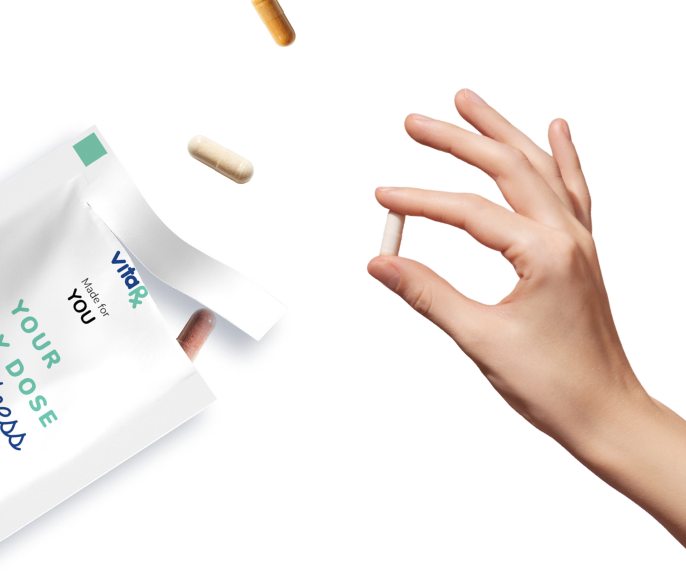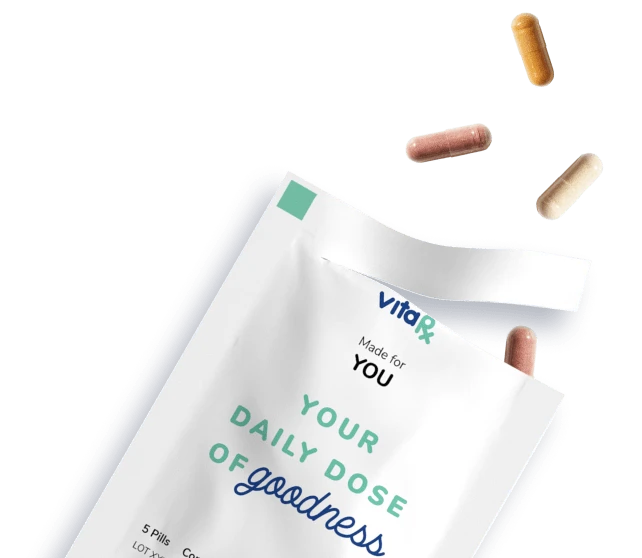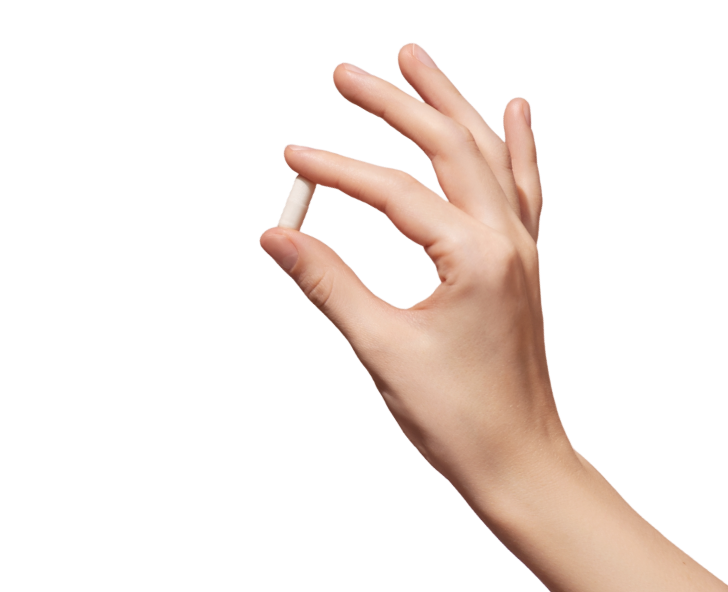Last update: January 21, 2025
6 minute read
What is Ipriflavone?
Unravel the mystery of ipriflavone. Learn its impact on bone health, dive into research findings, and explore alternatives for osteoporosis support.

By Stephanie Wright, RN, BSN
Edited by Dr. Jacquie Leone, NMD, HN

Have you ever toyed with the idea of taking Learn moreipriflavone? If you're anything like me, you've likely delved into various supplements in your quest for better bone health. Ipriflavone is a synthetic compound often touted for its potential in preventing bone loss, especially post-menopause bone loss. However, its effectiveness and safety are subjects of ongoing debate.
Key takeaways
- Ipriflavone has been shown in studies to be ineffective and potentially associated with certain risks
- Supplements like calcium, vitamin D3, magnesium, and vitamin K2 play a significant role in maintaining bone health
- A balanced diet, regular exercise, and certain lifestyle changes are essential for bone health
What is ipriflavone?
Ipriflavone, synthesized from naturally occurring Learn moreisoflavones, has long been on the radar of those pursuing healthier bones. With its history of use in countries like Japan and Italy, it's easy to see why people might be tempted to give it a whirl. But let's cut through the hype and dig into the science.

What does the research say about ipriflavone?
Alright, it's time for the million-dollar question. Has research painted a rosy picture of ipriflavone for bone health?
Osteoporosis is a disorder where your bone mass declines and your risk for fracture increases. Estrogen promotes bone growth, so the decline of the hormone in post-menopausal women has many searching for treatment options.
Our research review focuses on ipriflavones and their ability to potentially prevent osteoporosis. In a review study involving thousands of postmenopausal women, experts found that ipriflavone had beneficial effects on bone marrow density and was deemed safe to use.
Another study found ipriflavone promotes bone cell growth and reproduction and stimulates collagen production to improve bone health and density. Research also shows promising results in supporting inflammatory arthritis, like osteoarthritis and rheumatoid arthritis.
Even more promising, research suggests isoflavones like ipriflavone had a significant effect in preventing fractures, but the results of those studies may be controversial.
VitaRx Tip
More research is needed to make a definitive conclusion, but its potential is promising.
Are there alternative approaches?
Based on this, it seems like it might be smarter to explore alternative methods to maintain your bone health. The National Women's Health Network promotes lifestyle changes like maintaining a healthy diet, strength training (especially weight-bearing exercises like push-ups and squats), and balance exercises to potentially prevent falls and fractures.
What's more, the National Institutes of Health has indicated that calcium, magnesium, Vitamin D3, and K2 all play a vital role in developing and preserving strong bones, and supplements can be a good option if your diet lacks these nutrients.
So there you have it. While ipriflavone may have sounded like a solid bet for boosting bone health, it might not be your best option. But hey, that's what research is for, right?
What's the bottom line on ipriflavone?
So, should you be reaching for that bottle of ipriflavone? Based on what we've seen so far, it's best to leave ipriflavone on the shelf. While it's been touted as a potential solution for osteoporosis, the science just doesn't back it up (right now).
Are there safer and more effective alternatives to ipriflavone?
Since we've determined that ipriflavone isn't the magic potion for bone health you were hoping for, it's time to explore other options that could be safer and more effective. The National Women's Health Network proposes simple yet effective lifestyle changes that anyone can adopt:
- Maintaining a healthy diet
- Engaging in regular strength training
- Practicing balance exercises to potentially prevent falls and fractures
VitaRx Tip
Like any good recipe, combined ingredients can help us fortify our bones. When it comes to our health, the synergy of a balanced diet, regular exercise, and safe supplementation can be our best defense against bone loss.
A look at key nutritional supplements for bone health
The following table provides a snapshot of some key nutritional supplements that can contribute to bone health. Each supplement shows the recommended daily intake for most adults and is sourced from the National Institutes of Health:
- Calcium: 1,000-1,200 mg/day
- Vitamin D: 600-800 mg/day
While getting these nutrients through your diet is ideal, it isn't always possible. That's where supplements can swoop in to save the day, ensuring you're not falling short on these vital nutrients. However, it’s always best to consult with your healthcare provider before starting any new supplement regimen.
Advantages and disadvantages of using supplements for bone health
The world of supplements can be full of confusing claims and convoluted medical jargon. So let's make it simple and straightforward as we outline the advantages and disadvantages of supplements for bone health.
Frequently asked questions (FAQ)
Here are some of the most frequently asked questions about ipriflavone.
Final thoughts
Just like building a Lego tower, constructing a solid foundation for your bones involves many pieces, and finding the right ones can be tricky. From this post, you've learned that while ipriflavone might not be the 'bone-a-fide' superstar it was once thought to be, there are other proven strategies and supplements that can help. To your bone health, cheers! Remember, you're never too old to be young at the bone!
Sources and references
- Ipriflavone | C18H16O3 | CID 3747 - PubChem
- Effects of isoflavone interventions on bone mineral density in postmenopausal women: a systematic review and meta-analysis of randomized controlled trials | Osteoporosis International
- Effects of ipriflavone and its metabolites on a clonal osteoblastic cell line | Journal of Bone and Mineral Research | Oxford Academic
- Possible Repositioning of an Oral Anti-Osteoporotic Drug, Ipriflavone, for Treatment of Inflammatory Arthritis via Inhibitory Activity of KIAA1199, a Novel Potent Hyaluronidase
- The Probable Impact of Soy Isoflavones in Bone Fracture Downturn: A Systematic Review
- Keeping the Gold in the Golden Years: Staying Healthy as We Age | NWHN
- Calcium, vitamin D, vitamin K2, and magnesium supplementation and skeletal health
- Osteoporosis: Diagnosis, Treatment, and Steps to Take
Author

Stephanie Wright
Stephanie brings over 13 years of diverse nursing experience to the table, having honed her expertise in critical care, mental health, and utilization management. Her journey as a registered nurse across these various healthcare sectors underscores her adaptability and deep commitment to patient care.
Fact checker

Dr. Jacquie Leone
Dr. Leone holds a BA in Psychology, a Doctorate in Naturopathic Medicine, and board certification in holistic nutrition. In addition to practicing medicine, Dr. Leone has developed and currently teaches science and nutrition courses for a nationally accredited institution. She specializes in chronic illness, gastrointestinal dysregulation, inflammatory conditions, and mental health. Her unique approach combines the wisdom of Eastern medicine with the technology and science of Western medicine, offering an integrative approach heavily focused on functional medicine.
At VitaRx, we're not just passionate about our work — we take immense pride in it. Our dedicated team of writers diligently follows strict editorial standards, ensuring that every piece of content we publish is accurate, current, and highly valuable. We don't just strive for quality; we aim for excellence.
Related posts
While you're at it, here are some other relevant articles you might be interested in.

Get your personalized vitamin recommendations in less than
5 minutes.
Get your personalized vitamin recommendations in less than
5 minutes.







